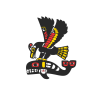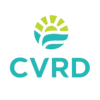Media Release, Cowichan Watershed Board, March 21, 2016
(Duncan) Cowichan Watershed Board is marking the UN’s World Water Day on March 22 by congratulating local residents and water suppliers for significant water-saving progress in the Cowichan Water Challenge in 2015. The Challenge engages most of the region’s major water suppliers in a collective race to reduce home water use by 20% over four years (2014-2018).
Overall residential water consumption went down last year in nearly every participating water system despite last summer’s severe drought, which might normally lead to increased demand. This is largely due to Watering Restriction Bylaws going to Stage 3 early last July. Hopefully we are also seeing an improving culture of conservation (and less water waste) year-round as we all become more aware of the value of our water.
According to data provided by the water suppliers, Chemainus (a North Cowichan water system) achieved the best improvement in average residential water consumption, declining by 65 litres/person/day (LPD), or 25%.
Other areas that achieved significant savings were the Satellite Water System (CVRD), Mill Bay Water District, and North Cowichan’s Crofton and South End systems, each dropping by approximately 16-17%.*
Local well-driller and Chair of the Cowichan Watershed Board’s Water Conservation Working Group, David Slade, says, “Lets raise a glass to World Water Day! People here really rose to the challenge of extreme drought and low flows last summer, proving to ourselves that we can live with far less water. While our water issues pale in comparison to those of California, we don’t know what the future will bring, and we don’t know what our water resources will support. Conservation is an essential step on the path to sustainability.”
In many parts of the world climate change has brought longer and drier summers. Combined with population growth, this has caused many surface water supplies to reach critical lows, and aquifers to decline drastically.
How does our water use compare? On average, Canadians use more water per person than almost anywhere in the world, likely because we pay less for our water than anywhere in the world. Water metering is helping to kick this unsustainable habit across the country.
According to the last Canadian statistics on municipal water systems (2011), average residential water consumption was 251 litres/person/day (LPD), down from 342 LPD in 1991. In BC, the average was 312 LPD, which is much higher than Alberta at 187 LPD. (Source: https://www.statcan.gc.ca/pub/16-403-x/2013001/longdesc-ct004-eng.htm)
By comparison, the UN estimates that the amount of water needed for human survival is approximately 5 LPD while the minimum amount needed to meet sanitation, food preparation, and bathing needs is 50 (preferably 60-80) LPD.
Here in Cowichan Region, recent data* indicates residents use between 191 LPD (congratulations Chemainus!) and 338 LPD in another area. Residential consumption varies widely according to the amount of land/gardens, type of watering systems used, and household conservation practices.
The Water Challenge was inspired in part by Ladysmith’s great success in water conservation in recent years. Between 2002 and 2013, the town reduced total water use from 1,700,000 m3 to 1,279,000m3, or approximately 25%, while the population grew by 20%, proving that big water savings are achievable.
North Cowichan achieved impressive water reductions in 2015 by implementing watering restrictions to help reduce non-essential water usage such as the irrigation of lawns. According to Shaun Chadburn, Engineering Technologist (Environmental Programs) water usage during the summer months of 2015 was reduced by 35% when compared to the summer of 2013 when no restrictions were in place.
Cowichan Valley Regional District is concentrating efforts to help homeowners make a “water smart” shift in neighbourhoods that generate a high number of complaints about non-compliance with watering bylaws. For example, an educational workshop on micro-drip irrigation systems was offered in Arbutus Ridge last summer to help residents conserve. Micro-drip systems are so water efficient that they are exempt from the bylaws. CVRD also maintains a website with extensive resources and up to date information on drought conditions.
https://cvrdnewnormalcowichan.ca
Other Cowichan Water Challenge participants are City of Duncan (which also supplies most Cowichan Tribes homes), Town of Lake Cowichan, Cowichan Bay and Mill Bay. All seven systems will be using the same watering restrictions schedule this summer to reduce confusion across the region, leading to improved compliance.
“It may seem like we are awash in water here, especially at this time of year, but that doesn’t justify being wasteful with our planet’s most valuable resource,” explains Slade, citing three benefits to water conservation:
- Cost – getting water to our taps and dealing with wastewater is expensive (more taxes!)
- Energy – pumping water requires power, which can contribute to climate change
- Groundwater recharge – some aquifers get depleted in the summer, with many wells going dry last year. Winter rains recharge most aquifers fully, but not all, and not every year. We don’t fully understand which ones are vulnerable so a precautionary approach is best.
“The old saying goes that ‘you don’t miss the water till the well runs dry’, but let’s not wait till then,” says Slade. “We need to learn from the hard lessons of California and treat all of our fresh water like the truly priceless resource that it is. Cheers!”
*According to initial 2015 water use data provided by water suppliers participating in the Water Challenge.
-30-
Media Contacts
David Slade, Drillwell Enterprises, Cowichan Watershed Board Member / [email protected] / 250-746-5268
Mayor Jon Lefebure, CVRD Chair-person, Cowichan Watershed Board Co-Chair / [email protected]
Cowichan Watershed Board | 3961 Riverside Road, Duncan BC, V9L 6N1 | 250-701-0143 https://cowichanwatershedboard.ca | Facebook: CowichanWatershedBoard
 Email
Email



